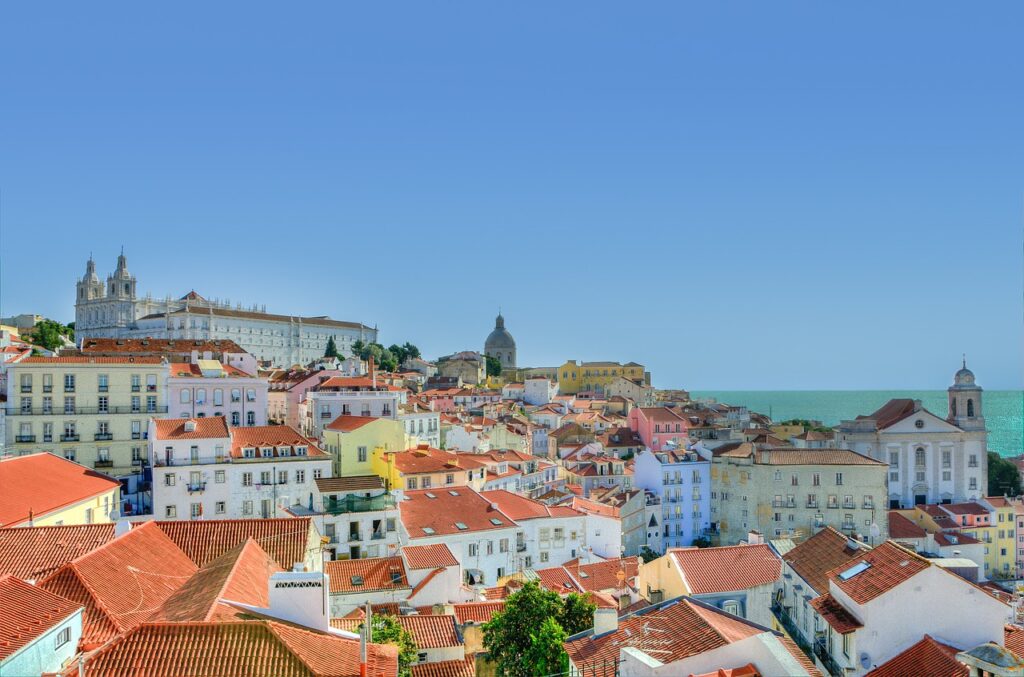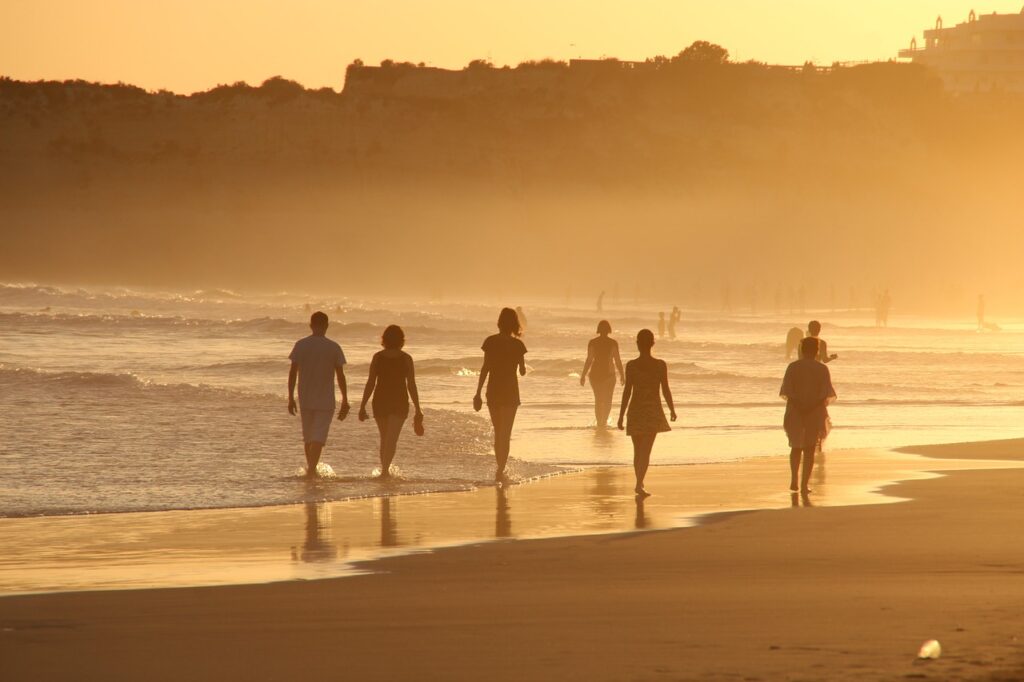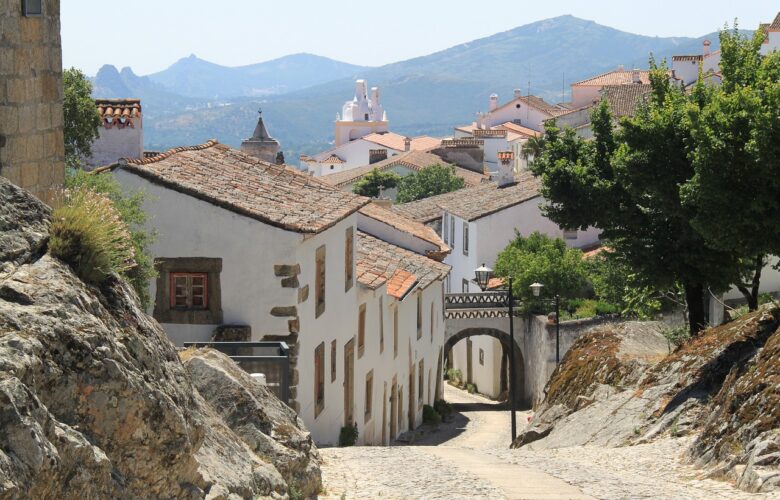In recent years Portugal has become a European property hotspot, to the extent that locals have taken to calling parts of the Algarve ‘California’ because so many stars have bought the property in the area. This once-overlooked corner of Europe is home to some of the best beaches in the world (according to the World Travel Awards 2020), and the more or less guaranteed 300 days of sunshine per year and mild winters are an additional attraction. Then, there’s the outstanding food and wine, the wonderfully rich architectural and cultural heritage, and the laid-back lifestyle. Not surprisingly, property prices have risen continuously in the past ten years. However, there are still plenty of bargains to be had, and property prices in Portugal are still considerably lower than in many comparable parts of Europe. Buying property as rental accommodation is a secure investment, but as with any country you are unfamiliar with, deciding what and where is time-consuming.
Let the internet do the work for you
Spending months driving the roads of Portugal is no longer necessary to get a sense of property prices. Instead, a site like Imovirtual will give you access to the property for sale across the entire country without the need to leave home.
Ask questions online before you go and visit
Not only can you browse potential purchases online, but you can also get specific detail from estate agents and experts on the ground. You will, of course, have to visit, ideally several, before you purchase. Still, you can eliminate clear ‘non-starters’ well in advance, which will enable you to concentrate on the serious contenders. When you are investing in a property and intending to rent it out, you need to be confident in your choice of property and location and that there won’t be any major building works nearby in the future.
Tap into the pool of expat expertise.
For the best impartial advice from people who are likely to share your perspective, tap into the repository of expat expertise available on expat forums and chat groups. As in all things, you need to seek a range of opinions, but expat support groups are an excellent way to find out things your estate agent might not mention.
What are the cheapest and most expensive areas?
As you would expect, Lisbon, Portugal’s capital, is the most expensive area of the country, followed by the Algarve and the beautiful tourist destination of Porto. On the other hand, Guarda, Portugal’s highest city, is currently the cheapest place in the country, according to Imovirtual, so it might come as a surprise that the granite city has a historic center, a cathedral, 16th-century arcades, and an ancient Jewish quarter.
What are the pros and cons of your chosen location?

Lisbon is expensive because it is a capital city with an international airport and is within easy driving distance of the Algarve. Cheaper locations are likely to be more remote and subject to more extreme weather. Central Portugal, for example, can be very hot in summer and very cold in winter. Another factor to consider is the proximity of a university. Portugal has a large student population. It is a cheap area to buy and may also have a student population looking to rent.
Set a budget
Property in Portugal is much cheaper than in comparable areas of Europe. Consequently, it’s easy to get carried away and buy something bigger than you intended or a property that needs a lot of restoration. There are many beautiful old properties still to be found in Portugal. Still, if you intend to buy an older property to rent, you need to be very confident that the expenditure will not spiral out of control. Restoring an older property almost always leads to the discovery of unexpected problems. A restoration project rarely comes in under budget, and completion deadlines are rarely met.
Consider the area outside of the holiday season
If you are investing in property in the south of the country, you can count on year-round sunshine. The probability is that you will be able to rent your accommodation for all months. However, if you purchase in the north or the center of the country, there are more likely to be extremes of heat and cold. The Atlantic coastline is very popular with surfers. The best waves occur during the winter. A judiciously chosen location on the Atlantic coast could provide income throughout the year. The proximity of a university could also mean that you can rent your property outside of the holiday season.
Know your target market
While it is entirely possible that you may have various clientele, your property will likely appeal to a particular type or group. This will partly depend on location and partly on facilities. For example, if your property is attractive to groups of young people, it is likely to experience more wear and tear. Therefore, you need to adjust your prices and policies accordingly. On the other hand, if your property is more likely to appeal to families, you need to ensure that it is equipped with suitable equipment, such as high-chairs, cots, stair gates, and children’s beds.
Local facilities

Obviously, proximity to a beach is a major plus. Still, other features of the locality might also be attractive to visitors, such as nature reserves or historic towns. A property that is miles from anywhere, however beautiful, will only attract a minority of customers. Shops, transport links, and hospitals should all be within a reasonable distance.
Features of the property
Remember that pools and gardens require constant maintenance. They will undoubtedly make your property more attractive to potential clients. However, there will also be a sustained cost, and this needs to be factored into your rental charges. Pools are also potentially dangerous. You need to ensure that they are fenced and that you are complying with all local safety requirements.
Featured Image by Philip Miles from Pixabay
